-

Oct
25
US Adult Obesity Increases

The United States Centers for Disease Control and Prevention (CDC) released new evidence that 16 states now have obesity rates of 35% or higher. Four states, Delaware, Iowa, Ohio, and Texas are the newest additions to the list during the past year. This number has nearly doubled from 2018, and all 50 states have more than 20% of adults with obesity.
Read more
-

Oct
25
USDA Awards SNAP Programs

“USDA’s commitment to improving the integrity of SNAP is never-ending, and states are crucial partners in that effort,” said Brandon Lipps, Deputy Under Secretary for USDA’s Food, Nutrition, and Consumer Services. “The grants announced today will foster new and expanded strategies for reducing fraud and payment errors, protecting taxpayer dollars, and ensuring public confidence in this program.”
Read more
-

Oct
25
USDA Funds Equality in Agriculture

“Equity is a vital consideration in all we do at USDA,” said Agriculture Secretary Tom Vilsack. “We must see to it that the programs we support and the investments we make are available to all and that we take distinct action in ensuring that historically underserved farmers and ranchers are able to participate in USDA programs and benefit from the opportunities USDA investments and programs can help create.”
Read more
-

Oct
25
California to Ban Gas-Powered Lawn Equipment

Starting as early as 2024, the state of California will ban the sale of gas-powered lawnmowers, leaf blowers, and chainsaws. The law requires all newly sold small-motor equipment primarily used for landscaping to be zero-emission. The California Air Resources Board will determine the date at which it is feasible to implement the law.
Read more
-

Oct
25
Head of NIH Steps Down

“It has been an incredible privilege to lead this great agency for more than a decade,” said Dr. Collins. “I love this agency and its people so deeply that the decision to step down was a difficult one, done in close counsel with my wife, Diane Baker, and my family. I am proud of all we’ve accomplished. I fundamentally believe, however, that no single person should serve in the position too long and that it’s time to bring in a new scientist to lead the NIH into the future. I’m most grateful and proud of the NIH staff and the scientific community, whose extraordinary commitment to lifesaving research delivers hope to the American people and the world every day.”
Read more
-

Oct
25
FSIS Denies Petition to Consider Cultured Meats Plant-Based
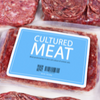
The USCA’s petition was primarily targeted towards synthetic and lab-grown products. FSIS addressed both topics. Considering lab-grown, cell-cultured products, FSIS stated that it intends to address this issue through an Advanced Notice of Proposed Rulemaking (ANPR), which was published on September 3rd. USCA’s petition is stated within the ANPR summary.
Read more
-

Oct
25
Opportunities for Fairness in Farming Act Introduced

“For far too long, farmers and ranchers have been forced to pay into these programs only to see their dollars go to trade and lobbying organizations that work against their very existence. USDA has failed to act, so it’s time for Congress to step in and do what’s right for family farmers and ranchers,” said Joe Maxwell, President of the Family Farm Action Alliance.
Read more
-

Oct
25
Cattle Antitrust Class Action Lawsuit Proceeds

The Ranchers-Cattlemen Action Legal Fund United Stockgrowers of America (R-CALF USA) have recently been involved in two cases related to the beef industry. The first against the nation’s 4 largest beef producers and the second against the Beef Checkoff Program.
Read more
-

Oct
25
Animal Welfare Question in Massachusetts Delayed

The Massachusetts House recently voted on the Question 3 initiative, prohibiting the sale of pork that does not meet the state’s production standards. Overwhelmingly, the House decided 156-1 to delay the initiative until January 1, 2023. Previously, it would have taken effect starting in 2022. The Massachusetts Senate still must vote on the decision.
Read more
-

Oct
25
Members of PCAST Announced

President Joe Biden announced the President’s Council of Advisors on Science and Technology (PCAST), external advisors charged with making science, technology, and innovation policy recommendations to the President and the White House. Thirty leaders were selected, containing the most diverse group in United States history.
Read more
-

Oct
21
Interpretive Summary: Potential use of ground brown rice for weanling pigs
.png?sfvrsn=48c74cd1_0)
Replacing corn with rice in diets for weaning or growing pigs has been studied in the past and has demonstrated improved growth performance and nutrient digestibility, but there is limited information about corn replacement with brown rice on growth performance, immune status, and gut microbiota of weanling pigs.
Read more
-

Oct
21
Interpretive Summary: Characterization of bacterial DNA identified in abscessed and non-abscessed bovine hepatic tissue at the time of harvest
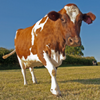
Bovine liver abscesses continue to be a primary concern facing beef production efficiency and, despite current mitigation strategies, significant variation exists in the rate of liver condemnation.
Read more
-

Oct
18
Interpretive Summary: Dietary taurine protects against oxidative stress in broiler chickens
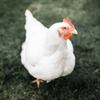
The authors of this recent Journal of Animal Science study hypothesized that supplementation with the amino acid taurine would attenuate oxidative stress in broiler chickens. Injury from oxidative stress happens when the body’s ability to control free radicals is overwhelmed.
Read more
-

Oct
18
Interpretive Summary: Homeopathic supplementations effects on stress response of growing pigs from road transportation

Livestock transportation may cause significant economic losses in the swine industry due to the animal's stress response. Previous research has linked road transportation to many factors negatively impacting the animal's physiological status; release of glucocorticoids, inhibition of antibodies following vaccination, and interferes with the absorption of nutrients in the small intestine, to name a few.
Read more
-

Oct
18
Interpretive Summary: Impacts of L-glutamine in swine nursery diets
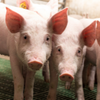
Stress from weaning and transport leads to poor piglet health outcomes such as diarrhea and increased susceptibility to infections. In the past, feeding prophylactic antibiotics prevented gastrointestinal disease and reduced piglet morbidity and mortality. In this recent Journal of Animal Science study, researchers fed nursery pigs GLN or antibiotics and then compared their intestinal health and gut microbiomes.
Read more
-

Oct
14
Interpretive Summary: Triennial reproduction symposium: L.E. Casida Award for Excellence in Graduate Education: mentoring graduate students in animal science

Specific research objectives within any lab are crucial; however, Dr. Wettemann states that opportunities for deviation and originality for new ideas should be encouraged. This is how students will ultimately solve the questions.
Read more
-

Oct
14
Interpretive Summary: Behavioral and stress responses to feeding time in pregnant sows
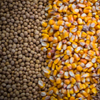
Feeding time can directly impact sow performance and stress levels. Depending on the time of day and length of time animals are fed, physiological and behavior changes may occur. How such changes impact animal welfare and performance, however, are poorly understood.
Read more
-

Oct
14
Interpretive Summary: Establishment of a bovine rumen epithelial cell line
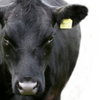
The rumen is essential for digestion and absorption in ruminant animals. Thus, feed ingredients, whether roughage or concentrate, must first be digested by enzymes from microbes in the rumen to produce volatile fatty acids (VFAs).
Read more
-

Oct
14
Interpretive Summary: Heat processing increased the digestibility of phosphorus in soybean expeller, canola meal, and canola expeller fed to growing pigs
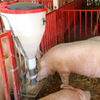
Over two-thirds of the total Phosphorus in plant-based ingredients used in swine diets are present as inositol hexakisphosphate, more commonly known as phytate, and is poorly available to the pig. Deficient Phosphorus levels can have adverse effects on growth performance and the eutrophication of water.
Read more
-

Oct
07
Interpretive Summary: 129 Genomic Relationship Between PRRSV Wild-type Infection and PRRSV...
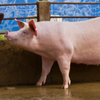
The selection of swine for production typically occurs in a purebred, high health, biosecure nucleus herd. However, this selection and management system limits industry capabilities to genetically select for traits the confer disease resistance and antibody response to pathogen challenges.
Read more
 OctUS Adult Obesity Increases
OctUS Adult Obesity Increases The United States Centers for Disease Control and Prevention (CDC) released new evidence that 16 states now have obesity rates of 35% or higher. Four states, Delaware, Iowa, Ohio, and Texas are the newest additions to the list during the past year. This number has nearly doubled from 2018, and all 50 states have more than 20% of adults with obesity.
The United States Centers for Disease Control and Prevention (CDC) released new evidence that 16 states now have obesity rates of 35% or higher. Four states, Delaware, Iowa, Ohio, and Texas are the newest additions to the list during the past year. This number has nearly doubled from 2018, and all 50 states have more than 20% of adults with obesity. OctUSDA Awards SNAP Programs
OctUSDA Awards SNAP Programs “USDA’s commitment to improving the integrity of SNAP is never-ending, and states are crucial partners in that effort,” said Brandon Lipps, Deputy Under Secretary for USDA’s Food, Nutrition, and Consumer Services. “The grants announced today will foster new and expanded strategies for reducing fraud and payment errors, protecting taxpayer dollars, and ensuring public confidence in this program.”
“USDA’s commitment to improving the integrity of SNAP is never-ending, and states are crucial partners in that effort,” said Brandon Lipps, Deputy Under Secretary for USDA’s Food, Nutrition, and Consumer Services. “The grants announced today will foster new and expanded strategies for reducing fraud and payment errors, protecting taxpayer dollars, and ensuring public confidence in this program.” OctUSDA Funds Equality in Agriculture
OctUSDA Funds Equality in Agriculture “Equity is a vital consideration in all we do at USDA,” said Agriculture Secretary Tom Vilsack. “We must see to it that the programs we support and the investments we make are available to all and that we take distinct action in ensuring that historically underserved farmers and ranchers are able to participate in USDA programs and benefit from the opportunities USDA investments and programs can help create.”
“Equity is a vital consideration in all we do at USDA,” said Agriculture Secretary Tom Vilsack. “We must see to it that the programs we support and the investments we make are available to all and that we take distinct action in ensuring that historically underserved farmers and ranchers are able to participate in USDA programs and benefit from the opportunities USDA investments and programs can help create.” OctCalifornia to Ban Gas-Powered Lawn Equipment
OctCalifornia to Ban Gas-Powered Lawn Equipment Starting as early as 2024, the state of California will ban the sale of gas-powered lawnmowers, leaf blowers, and chainsaws. The law requires all newly sold small-motor equipment primarily used for landscaping to be zero-emission. The California Air Resources Board will determine the date at which it is feasible to implement the law.
Starting as early as 2024, the state of California will ban the sale of gas-powered lawnmowers, leaf blowers, and chainsaws. The law requires all newly sold small-motor equipment primarily used for landscaping to be zero-emission. The California Air Resources Board will determine the date at which it is feasible to implement the law. OctHead of NIH Steps Down
OctHead of NIH Steps Down “It has been an incredible privilege to lead this great agency for more than a decade,” said Dr. Collins. “I love this agency and its people so deeply that the decision to step down was a difficult one, done in close counsel with my wife, Diane Baker, and my family. I am proud of all we’ve accomplished. I fundamentally believe, however, that no single person should serve in the position too long and that it’s time to bring in a new scientist to lead the NIH into the future. I’m most grateful and proud of the NIH staff and the scientific community, whose extraordinary commitment to lifesaving research delivers hope to the American people and the world every day.”
“It has been an incredible privilege to lead this great agency for more than a decade,” said Dr. Collins. “I love this agency and its people so deeply that the decision to step down was a difficult one, done in close counsel with my wife, Diane Baker, and my family. I am proud of all we’ve accomplished. I fundamentally believe, however, that no single person should serve in the position too long and that it’s time to bring in a new scientist to lead the NIH into the future. I’m most grateful and proud of the NIH staff and the scientific community, whose extraordinary commitment to lifesaving research delivers hope to the American people and the world every day.” OctFSIS Denies Petition to Consider Cultured Meats Plant-Based
OctFSIS Denies Petition to Consider Cultured Meats Plant-Based The USCA’s petition was primarily targeted towards synthetic and lab-grown products. FSIS addressed both topics. Considering lab-grown, cell-cultured products, FSIS stated that it intends to address this issue through an Advanced Notice of Proposed Rulemaking (ANPR), which was published on September 3rd. USCA’s petition is stated within the ANPR summary.
The USCA’s petition was primarily targeted towards synthetic and lab-grown products. FSIS addressed both topics. Considering lab-grown, cell-cultured products, FSIS stated that it intends to address this issue through an Advanced Notice of Proposed Rulemaking (ANPR), which was published on September 3rd. USCA’s petition is stated within the ANPR summary. OctOpportunities for Fairness in Farming Act Introduced
OctOpportunities for Fairness in Farming Act Introduced “For far too long, farmers and ranchers have been forced to pay into these programs only to see their dollars go to trade and lobbying organizations that work against their very existence. USDA has failed to act, so it’s time for Congress to step in and do what’s right for family farmers and ranchers,” said Joe Maxwell, President of the Family Farm Action Alliance.
“For far too long, farmers and ranchers have been forced to pay into these programs only to see their dollars go to trade and lobbying organizations that work against their very existence. USDA has failed to act, so it’s time for Congress to step in and do what’s right for family farmers and ranchers,” said Joe Maxwell, President of the Family Farm Action Alliance. OctCattle Antitrust Class Action Lawsuit Proceeds
OctCattle Antitrust Class Action Lawsuit Proceeds The Ranchers-Cattlemen Action Legal Fund United Stockgrowers of America (R-CALF USA) have recently been involved in two cases related to the beef industry. The first against the nation’s 4 largest beef producers and the second against the Beef Checkoff Program.
The Ranchers-Cattlemen Action Legal Fund United Stockgrowers of America (R-CALF USA) have recently been involved in two cases related to the beef industry. The first against the nation’s 4 largest beef producers and the second against the Beef Checkoff Program. OctAnimal Welfare Question in Massachusetts Delayed
OctAnimal Welfare Question in Massachusetts Delayed The Massachusetts House recently voted on the Question 3 initiative, prohibiting the sale of pork that does not meet the state’s production standards. Overwhelmingly, the House decided 156-1 to delay the initiative until January 1, 2023. Previously, it would have taken effect starting in 2022. The Massachusetts Senate still must vote on the decision.
The Massachusetts House recently voted on the Question 3 initiative, prohibiting the sale of pork that does not meet the state’s production standards. Overwhelmingly, the House decided 156-1 to delay the initiative until January 1, 2023. Previously, it would have taken effect starting in 2022. The Massachusetts Senate still must vote on the decision. OctMembers of PCAST Announced
OctMembers of PCAST Announced President Joe Biden announced the President’s Council of Advisors on Science and Technology (PCAST), external advisors charged with making science, technology, and innovation policy recommendations to the President and the White House. Thirty leaders were selected, containing the most diverse group in United States history.
President Joe Biden announced the President’s Council of Advisors on Science and Technology (PCAST), external advisors charged with making science, technology, and innovation policy recommendations to the President and the White House. Thirty leaders were selected, containing the most diverse group in United States history. OctInterpretive Summary: Potential use of ground brown rice for weanling pigs
OctInterpretive Summary: Potential use of ground brown rice for weanling pigs.png?sfvrsn=48c74cd1_0) Replacing corn with rice in diets for weaning or growing pigs has been studied in the past and has demonstrated improved growth performance and nutrient digestibility, but there is limited information about corn replacement with brown rice on growth performance, immune status, and gut microbiota of weanling pigs.
Replacing corn with rice in diets for weaning or growing pigs has been studied in the past and has demonstrated improved growth performance and nutrient digestibility, but there is limited information about corn replacement with brown rice on growth performance, immune status, and gut microbiota of weanling pigs. OctInterpretive Summary: Characterization of bacterial DNA identified in abscessed and non-abscessed bovine hepatic tissue at the time of harvest
OctInterpretive Summary: Characterization of bacterial DNA identified in abscessed and non-abscessed bovine hepatic tissue at the time of harvest Bovine liver abscesses continue to be a primary concern facing beef production efficiency and, despite current mitigation strategies, significant variation exists in the rate of liver condemnation.
Bovine liver abscesses continue to be a primary concern facing beef production efficiency and, despite current mitigation strategies, significant variation exists in the rate of liver condemnation. OctInterpretive Summary: Dietary taurine protects against oxidative stress in broiler chickens
OctInterpretive Summary: Dietary taurine protects against oxidative stress in broiler chickens The authors of this recent Journal of Animal Science study hypothesized that supplementation with the amino acid taurine would attenuate oxidative stress in broiler chickens. Injury from oxidative stress happens when the body’s ability to control free radicals is overwhelmed.
The authors of this recent Journal of Animal Science study hypothesized that supplementation with the amino acid taurine would attenuate oxidative stress in broiler chickens. Injury from oxidative stress happens when the body’s ability to control free radicals is overwhelmed. OctInterpretive Summary: Homeopathic supplementations effects on stress response of growing pigs from road transportation
OctInterpretive Summary: Homeopathic supplementations effects on stress response of growing pigs from road transportation Livestock transportation may cause significant economic losses in the swine industry due to the animal's stress response. Previous research has linked road transportation to many factors negatively impacting the animal's physiological status; release of glucocorticoids, inhibition of antibodies following vaccination, and interferes with the absorption of nutrients in the small intestine, to name a few.
Livestock transportation may cause significant economic losses in the swine industry due to the animal's stress response. Previous research has linked road transportation to many factors negatively impacting the animal's physiological status; release of glucocorticoids, inhibition of antibodies following vaccination, and interferes with the absorption of nutrients in the small intestine, to name a few. OctInterpretive Summary: Impacts of L-glutamine in swine nursery diets
OctInterpretive Summary: Impacts of L-glutamine in swine nursery diets Stress from weaning and transport leads to poor piglet health outcomes such as diarrhea and increased susceptibility to infections. In the past, feeding prophylactic antibiotics prevented gastrointestinal disease and reduced piglet morbidity and mortality. In this recent Journal of Animal Science study, researchers fed nursery pigs GLN or antibiotics and then compared their intestinal health and gut microbiomes.
Stress from weaning and transport leads to poor piglet health outcomes such as diarrhea and increased susceptibility to infections. In the past, feeding prophylactic antibiotics prevented gastrointestinal disease and reduced piglet morbidity and mortality. In this recent Journal of Animal Science study, researchers fed nursery pigs GLN or antibiotics and then compared their intestinal health and gut microbiomes. OctInterpretive Summary: Triennial reproduction symposium: L.E. Casida Award for Excellence in Graduate Education: mentoring graduate students in animal science
OctInterpretive Summary: Triennial reproduction symposium: L.E. Casida Award for Excellence in Graduate Education: mentoring graduate students in animal science Specific research objectives within any lab are crucial; however, Dr. Wettemann states that opportunities for deviation and originality for new ideas should be encouraged. This is how students will ultimately solve the questions.
Specific research objectives within any lab are crucial; however, Dr. Wettemann states that opportunities for deviation and originality for new ideas should be encouraged. This is how students will ultimately solve the questions. OctInterpretive Summary: Behavioral and stress responses to feeding time in pregnant sows
OctInterpretive Summary: Behavioral and stress responses to feeding time in pregnant sows Feeding time can directly impact sow performance and stress levels. Depending on the time of day and length of time animals are fed, physiological and behavior changes may occur. How such changes impact animal welfare and performance, however, are poorly understood.
Feeding time can directly impact sow performance and stress levels. Depending on the time of day and length of time animals are fed, physiological and behavior changes may occur. How such changes impact animal welfare and performance, however, are poorly understood. OctInterpretive Summary: Establishment of a bovine rumen epithelial cell line
OctInterpretive Summary: Establishment of a bovine rumen epithelial cell line The rumen is essential for digestion and absorption in ruminant animals. Thus, feed ingredients, whether roughage or concentrate, must first be digested by enzymes from microbes in the rumen to produce volatile fatty acids (VFAs).
The rumen is essential for digestion and absorption in ruminant animals. Thus, feed ingredients, whether roughage or concentrate, must first be digested by enzymes from microbes in the rumen to produce volatile fatty acids (VFAs). OctInterpretive Summary: Heat processing increased the digestibility of phosphorus in soybean expeller, canola meal, and canola expeller fed to growing pigs
OctInterpretive Summary: Heat processing increased the digestibility of phosphorus in soybean expeller, canola meal, and canola expeller fed to growing pigs Over two-thirds of the total Phosphorus in plant-based ingredients used in swine diets are present as inositol hexakisphosphate, more commonly known as phytate, and is poorly available to the pig. Deficient Phosphorus levels can have adverse effects on growth performance and the eutrophication of water.
Over two-thirds of the total Phosphorus in plant-based ingredients used in swine diets are present as inositol hexakisphosphate, more commonly known as phytate, and is poorly available to the pig. Deficient Phosphorus levels can have adverse effects on growth performance and the eutrophication of water. OctInterpretive Summary: 129 Genomic Relationship Between PRRSV Wild-type Infection and PRRSV...
OctInterpretive Summary: 129 Genomic Relationship Between PRRSV Wild-type Infection and PRRSV... The selection of swine for production typically occurs in a purebred, high health, biosecure nucleus herd. However, this selection and management system limits industry capabilities to genetically select for traits the confer disease resistance and antibody response to pathogen challenges.
The selection of swine for production typically occurs in a purebred, high health, biosecure nucleus herd. However, this selection and management system limits industry capabilities to genetically select for traits the confer disease resistance and antibody response to pathogen challenges.



